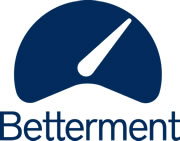Tax season has rolled around once again, and so has the inevitable dread that comes with it.
It’s understandable that a lot of us worry we’ll make one small, accidental mistake and then get in “big trouble” with the IRS after. When it comes to something as complicated and serious as taxes, it’s sometimes hard to feel confident that you’re doing it right.
Enter accountants. Their entire job is to make sure their clients’ taxes ? and their own taxes ? are all squared away and mistake free. That’s why we asked them to share what they personally would never do (and warn others from doing) when filing. Steal their secrets below as you work on yours:
1. They would never file without being sure all documents are in.
For one, this means reporting all of your income, no matter how small.
“If I were to file my tax return without reporting some income that was reported to me on my tax return, the IRS would likely catch it, calculate what my taxes should have been had I reported that income — often without giving me any credit for legitimate deductions or basis against that income — and send me a CP2000 notice,” said Logan Allec, a CPA and the owner of tax relief company Choice Tax Relief.
He added that CP2000 notices are a pain to deal with and “might even propose to assess a substantial understatement penalty, which can be quite large.”
Documentation regards more than just income, too. To figure out what documents you specifically need to file, check out an individualized tax document checklist. For example, you may have extra documentation if you have dependents, student loans and more.
Additionally, Allec suggested the following:
- Making a list of all the tax documents used to prepare the previous year’s return
- Recalling any new accounts opened, or new sources of income to add to the list
Alternatively, another approach is to pull the wage and income transcript for the year directly from the IRS, he said, which shows all the tax documents that were issued to you that year.
“However, since wage and income transcripts for last year typically aren’t ready until late spring or summer of the current year, I would have to file an extension of time to file and also ensure that I had paid in all the taxes I owe for last year (or my best estimate of this amount) by the original deadline,” he continued.
2. They wouldn’t rush to file instead of filing for an extension.
It’s indeed OK to ask for an extension if needed, according to Victoria Rothbauer, a CPA and member experience manager at Collective, a back office platform for entrepreneurs.
“An extension is just a tool to help relieve stress and ensure taxes are accurate,” she said. “They are free to file and, contrary to popular belief, it doesn’t raise red flags if you file an extension.” (You can file for an extension on the IRS website.)
Further, rushing increases the risk of making a mistake, she continued, and extra time can be used to research tax deductions and make retirement contributions, which lower your taxable income.
“Just keep in mind an extension gives you more time to file your taxes, not pay them,” she said. Paying late can result in extra fees.
3. They wouldn’t file without understanding the rules behind tax deductions.
Don’t write off items without doing your due diligence. “There’s a lot of bad advice out there promoting overly aggressive tax strategies without fully explaining the rules or requirements to take advantage of these deductions,” Allec said.
“A common one is using bonus depreciation to write off the majority of the cost of a new car against your business income this year,” he continued. That’s not automatically illegitimate, he said, just one to be careful about since the rules and requirements are complex.
“If you don’t want to spend the time researching the rules yourself, hire a tax professional to do your taxes for you,” he recommended. “The cost of doing so will be much less than the cost of hiring a professional to defend you in an IRS audit.”
Ekaterina Goncharova via Getty Images
4. They wouldn’t deduct a business expense for something that isn’t 100% part of their business.
Rothbauer also stressed that it’s best to understand what counts (and doesn’t count) as a tax deduction. “There are several deductions available to people who work for themselves, but the IRS maintains that anything deducted needs to be exclusively used for business,” she said.
The rules around that are fairly strict, too. She recalled clients asking about emotional support animals, exercise bikes in the home office, event tickets for wooing new clients, home office space used to entertain guests, and wedding or event costs for content creators — all of which can’t be deducted, she said, since they aren’t used exclusively for business purposes (as helpful as they may be).
But all is not lost. “I would familiarize myself with what is deductive instead,” she said. She listed potential examples that can save you a lot of money, such as retirement plans for the self-employed, charitable donations, portions of a home office and certain mileage.
5. They would not claim a loss without top-notch bookkeeping and receipts.
For those who don’t know, Schedule C, aka Form 1040, is where you “report income or loss from a business you operated or a profession you practiced as a sole proprietor,” according to the IRS website.
“The IRS loves auditing individual taxpayers who report large business losses on Schedule C, especially if the taxpayer is using this loss to offset other income, such as W-2 wage income, to lower their tax bill,” Allec said.
If your business did have actual loss for the year, he recommended keeping very good books and receipts throughout the year to substantiate the loss. That way, if you are audited, he said, it will hopefully end in “no-change” audit result.
6. They wouldn’t ignore the S Corporation tax election if they’re self-employed.
For those in the creator economy, this one is especially important to note.
“Running a solo business is becoming increasingly accessible, and people are realizing that they can profitably pursue their passions,” Rothbauer said. “But a lot of these business owners don’t understand what tax options are available to them, and one that is missed out on a lot is the S Corp election.”
Basically, it can help with self-employment taxes. “When an LLC or C Corp owner elects ‘Subchapter S’ as their tax status, their business is considered a pass-through entity, so the owner can split their earnings between payroll and business profits, easing the burden of self-employment tax,” Rothbauer explained. “For many, it can potentially be a difference of thousands of dollars in taxes each year.”
This tax status isn’t viable or the best option for everyone who’s self-employed, however. Rothbauer said it’s not available to sole proprietorships, and it only makes sense once someone is making a profit of $60,000 a year or more.
Finally, don’t forget to double check your work before submitting. And remember that if this information (or just the idea of tax season) stresses you out, you’re not alone. A lot of people worry about filing taxes ? but there are a bunch of resources (and people!) out there to help you tackle the process successfully. Reach out to a tax pro or use online tools to help assist you in the process.




